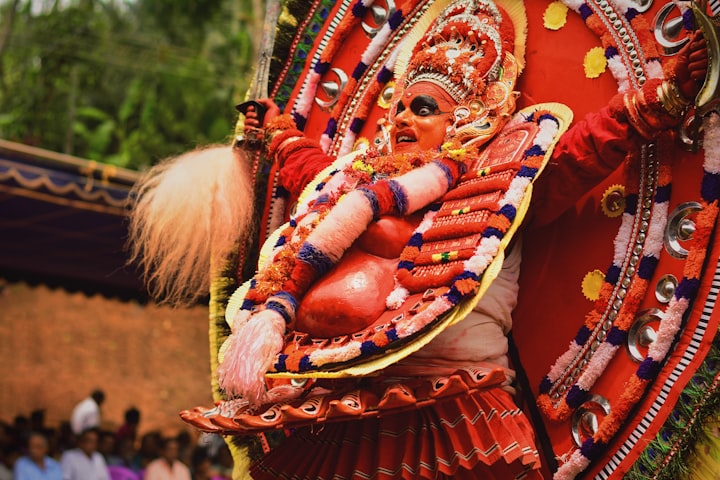
Satanism is a religious movement that has been shrouded in mystery and misunderstanding for centuries. Its origins can be traced back to the late 1800s, when it first emerged as a reaction to the rigid dogmatism of traditional Christianity. In this blog post, we will explore the history and beliefs of Satanism, as well as the different forms it has taken over the years.
LaVeyan Satanism :
The earliest form of Satanism was known as "LaVeyan Satanism," named after its founder, Anton LaVey. LaVey founded the Church of Satan in San Francisco in 1966 and wrote "The Satanic Bible" in 1969. This form of Satanism is often referred to as "atheistic Satanism" because it does not believe in the existence of a literal devil or supernatural entity. Instead, Satan is seen as a symbol of rebellion and individualism. LaVeyan Satanists believe that the universe is inherently amoral and that individuals should be free to make their own choices and take responsibility for the consequences. They also believe in the power of ritual and symbolism to focus the mind and harness personal power.
Theistic Satanism :
Another form of Satanism is known as "Theistic Satanism" or "Spiritual Satanism," which does believe in the existence of a literal devil or supernatural entity. They view Satan as a powerful being who can be worshipped and invoked for guidance and assistance. This form of Satanism is often seen as a form of occultism or ceremonial magic, and it is often associated with the Left-Hand Path, which emphasizes the use of ritual and meditation to gain knowledge and power.
Theistic Satanism is a minority form of Satanism, and it is not associated with the Church of Satan. The most well-known organization of Theistic Satanism is the Temple of Set, which was founded in 1975 by Michael Aquino, a former high priest of the Church of Satan. The Temple of Set believes in a pre-Christian deity named Set, who they believe is the true God and the originator of human civilization. They view Set as a being of great wisdom and power who can be contacted through ritual and meditation.
Left hand path Satanism :
There is also a form of Satanism that is often referred to as "LHP" or "Left-Hand Path" Satanism. This form of Satanism emphasizes the use of ritual and meditation to gain knowledge and power. It is often associated with theistic Satanism and the Temple of Set, but it is not limited to those groups. The Left-Hand Path is often seen as a form of occultism or ceremonial magic, and it is sometimes associated with the belief in the existence of a literal devil or supernatural entity.
Regardless of the form it takes, Satanism has always been a controversial and misunderstood religion. This is partly due to the negative connotations associated with the word "Satan," which is often used as a synonym for evil or the devil. Additionally, the secretive nature of many Satanist organizations and the lack of transparency about their beliefs and practices have contributed to the misconceptions about Satanism.
Despite the misconceptions, Satanism is a legitimate religion that has been practiced by a small but dedicated group of individuals for over a century. Whether you believe in the existence of a literal devil or see Satan as a symbol of rebellion and individualism, Satanism offers a unique perspective on the world and a path to self-discovery and personal empowerment.
In conclusion, Satanism is a diverse and evolving religious movement that has taken many forms over the years. From LaVeyan Satanism, which emphasizes the power of the individual, to theistic Satanism, which involves the worship of a literal devil, Satanism offers a unique perspective on the world.
Satanistic rituals :
Satanism, like any other religion, has its own set of rituals and practices. These rituals and practices vary depending on the specific form of Satanism being practiced.
In LaVeyan Satanism, rituals are often used to focus the mind and harness personal power. These rituals often involve the use of symbolism and ritual actions to invoke a specific emotion or state of mind. For example, the "Satanic Ritual" outlined in "The Satanic Bible" is a ceremonial event that is meant to invoke feelings of power and self-confidence. This ritual involves participants donning ceremonial robes and using specific words and actions to create a sense of drama and heightened emotion.
Theistic Satanism, or Spiritual Satanism, often involves the worship and invocation of a literal devil or supernatural entity. These rituals may involve the use of ceremonial magic and the evocation of spirits. They may also involve the use of ritual tools such as altars, candles, incense, and other symbolic items.
Left-Hand Path Satanism emphasizes the use of ritual and meditation to gain knowledge and power. These rituals may involve the use of ceremonial magic and the evocation of spirits. They may also involve the use of ritual tools such as altars, candles, incense, and other symbolic items.
It's important to note that not all Satanists practice rituals, and the rituals that are practiced can be different depending on the individual or group. Additionally, it's important to remember that Satanism, like any other religion, is a personal belief system and the practices and rituals of Satanism should be respected and not be judged.
Sacrifices done in the name of Satan :
Sacrifices are not a part of any legitimate form of Satanism. The Church of Satan, the most well-known organization of LaVeyan Satanism, specifically states that they do not believe in or condone the practice of animal or human sacrifice. They view such acts as morally reprehensible and illegal. Theistic Satanism, such as the Temple of Set, also do not practice any form of sacrifice.
It's important to note that any claims of satanic sacrifices being performed, especially human sacrifices, are likely to be false and are often perpetuated by misinformation and fear-mongering. Such claims are often used to demonize and stigmatize the Satanist community. In reality, Satanism is a religion that advocates for individual freedom, self-empowerment, and rationality, and it does not condone any form of violence or harm towards others.
Satanism - good or bad :
Satanism, like any other religion, is a personal belief system and can be viewed differently by different people. Some people may see it as a positive and empowering belief system, while others may see it as negative or harmful.
The Church of Satan, the most well-known organization of LaVeyan Satanism, advocates for individual freedom, self-empowerment, and rationality. They see Satan as a symbol of defiance against oppressive social norms and a representation of the human potential for greatness. They do not believe in a literal devil or any supernatural entities and do not condone any form of violence or harm towards others.
Theistic Satanism, or Spiritual Satanism, is a minority belief system that involves the worship and invocation of a literal devil or supernatural entity. However, it is important to understand that these beliefs and practices are not condoned or supported by legitimate Satanist organizations and that attempting to summon Satan or any other entity is not something to be taken lightly and can be dangerous.
Ultimately, it's important to remember that Satanism, like any other religion, is a personal belief system and should be respected. It's not something that should be judged or labeled as "good" or "bad" without understanding and respecting the beliefs and practices of those who adhere to it. And it's important to remember that Satanism, like any other religion, is not a call for violence, harm or any illegal activities.
About the Creator
Leo
"A professional writer is an amateur who didn't quit" - Richard Bach






Comments
There are no comments for this story
Be the first to respond and start the conversation.